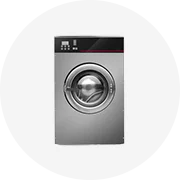

Stainless Steel Made Autopsy Table For Postmortem Examination Obduction Bench For Laboratory Hospital Animal Research


General Surgery Electro Hydraulic Operating Table Multi-Functional Perspective Surgical Bed Hospital Equipment


















Morgue tables are a critical component in the post-mortem examination and preparation of deceased individuals. These tables are designed to provide a stable, hygienic surface for mortuary procedures. They are typically constructed from stainless steel, offering durability and ease of cleaning. The design of a morgue table often includes features such as integrated sinks, drainage systems, and adjustable heights to accommodate various tasks and operator needs.
There are several types of morgue tables, each serving specific functions within a mortuary setting. Autopsy tables are specialized for post-mortem examinations, featuring dimensions and accessories that aid in forensic investigations. Embalming tables, on the other hand, are utilized during the embalming process, designed to efficiently manage fluids and provide a suitable working surface for morticians. The versatility of these tables allows them to be used in various scenarios, from hospital morgues to funeral homes.
The construction of a morgue table is focused on practicality and longevity. Stainless steel is the material of choice due to its resistance to corrosion and ease of sanitation. Some tables may include additional materials like high-density plastics for trays or silicone mats for added grip. Features such as tilting mechanisms, side rails, and overhead lighting are incorporated to enhance functionality and ergonomics.
A well-crafted morgue table provides numerous advantages in a mortuary context. Its robust construction ensures it can withstand the rigors of daily use, while its design prioritizes the respectful handling of the deceased. The incorporation of efficient drainage and disposal systems aids in maintaining a sanitary environment, which is paramount in a setting where health and safety standards are strictly observed.
When selecting a morgue table, considerations should include the specific needs of the facility, such as size constraints and the types of procedures commonly performed. Additionally, the ease of maintenance and compatibility with other mortuary equipment, like body lifts or refrigeration units, should be evaluated to ensure seamless integration into existing workflows.
In addition to the morgue table, a range of complementary equipment is available to support mortuary operations. This includes but is not limited to, body bags, mortuary garments, and protective apparel. These items are essential for the dignified and safe handling of the deceased, ensuring that the mortuary staff can perform their duties effectively while upholding the highest standards of care.